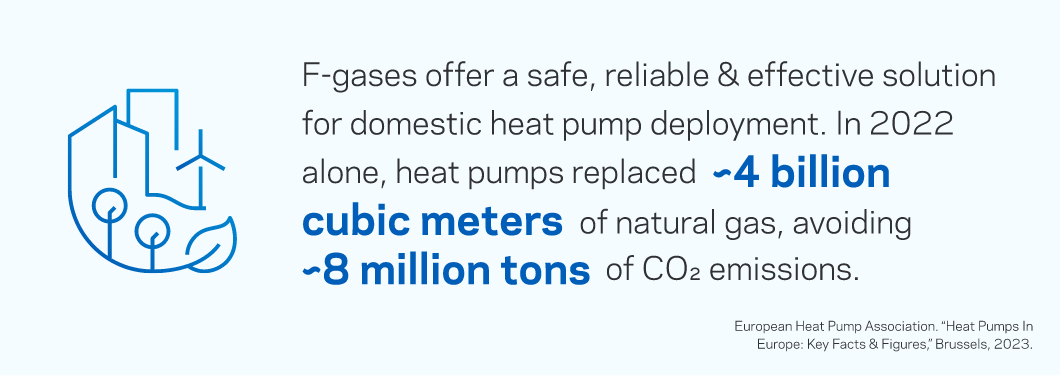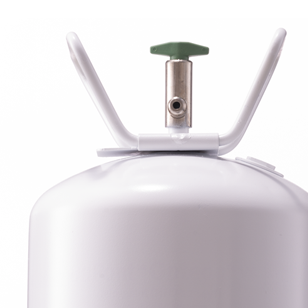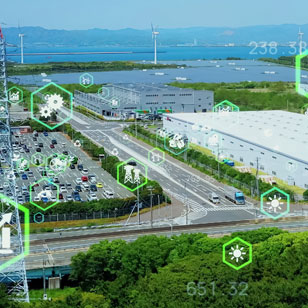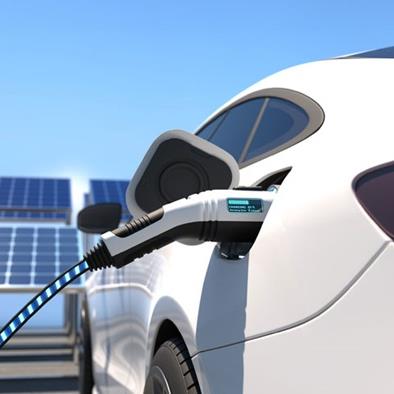Addressing climate change requires a fundamental shift in the way we produce and use energy. That means relying less on coal, oil, and natural gas to power society and more on renewable resources like wind and solar. It also means the electrification of heating and cooling (e.g., replacing gas boilers with high-efficiency heat pumps) and continued strides to improve energy efficiency and reduce consumption of nonrenewables.

Energy Efficiency & Climate Impact
F-gases offer superior performance and energy efficiency across applications and climates, making them essential for creating a decarbonized economy and enabling a swift transition to clean energy. So-called “natural” refrigerants simply aren’t up to the task. While they may have a low global warming potential (GWP), their relative inefficiency and poor thermal characteristics in many cases drive increased energy consumption. Energy consumption translates to increased CO₂ emissions, which further speed planetary warming.
The pitfalls of “naturals” don’t stop there, either. CO₂ systems are notoriously complex, ammonia systems have added risk-mitigation requirements, and hydrocarbon systems have scalability issues because of their flammability and charge size limitations. These shortcomings require more resources and more energy—resulting in a high level of “indirect” emissions.

A Welcome Ally
Featuring low to ultra-low GWP and excellent energy efficiency, today’s F-gases are a welcome ally in the effort to decarbonize the economy and slow climate change. F-gases are indispensable to supporting the rapid electrification of heating and cooling through heat pump technologies. (While “naturals” can be used in heat pumps, their performance limitations offset their benefits.)

F-gases are also key to progress in countless other modern applications, from range-extending heat pumps for electric vehicles to high-efficiency immersion cooling systems for data centers.









